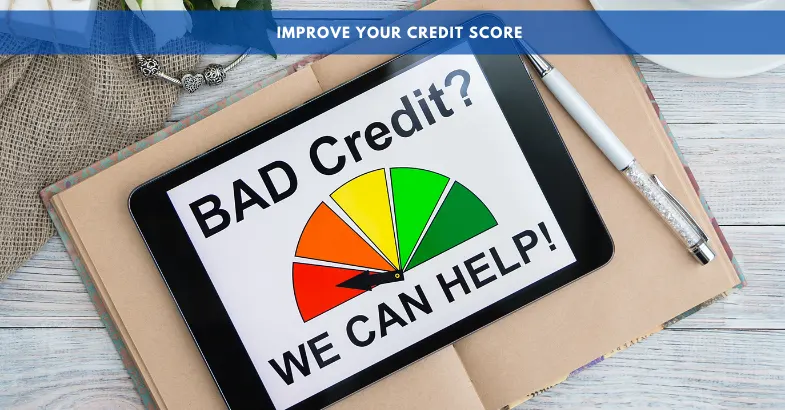Every year, individuals across the country simply discover just how valuable the health of their credit score is. Not only can good credit help you gain access to the financial tools and products that you want, but it can also get you affordable interest rates. In fact, several major banks and other conventional lenders may not approve you for certain products, like mortgages, and vehicle loans.
This is the main reason why it is important for you to understand how you are being scored. You should know why it is important for you to understand the relationship between your financial well-being and your credit score. It takes time and patience for you to improve your credit score. But the great news is if you put in the necessary work, you will see improvement over time.
What is a Credit Report
A credit score plays a major role in your overall financial scoring contains all of your personal information, your credit-related accounts, and transactions over a predetermined number of years. When you open an account for a new credit product it will be reported and added to your record.
A record of most transactions, includes your cancelled accounts, inquiries, and other instances that usually sits on file for around six years. However, more serious instances, such as delinquencies, bankruptcies, accounts put in collections, etc. may remain there longer.
What Qualifies as a Good Credit Score?
A credit score is a three-digit number, ranges from 300-900. This is based on your credit report summing up all your transactions as a credit user. The higher your score to 900, the more creditworthy, lenders will consider you. On the other hand, the closer your score to 300, the lenders may see you as a risky borrower.
According to TransUnion, a credit score of 650 or higher is the ideal point where lenders, such as banks and other traditional financial institutions, will consider you a low borrowing risk. Being a low-risk borrower may open up all sorts of financial avenues for you. A score of 750, your credit is considered excellent and you’ll have little to no problem getting approved for any credit products on the market.
What Caused My Credit Score to Drop?
One of the most important factors when it comes to your overall credit is your credit score. Your credit score is a three-digit number, ranges from 300-900, which works like a grade point average, only it relates to all of your credit-related transactions.
Here’s how your credit score will appear to most lenders:
760-900 = Outstanding
725-759 = Very Good
660 – 724 = Good
560 – 659 = Average
300 – 559 = Poor
According to TransUnion, a score of 650 or higher is where you would ideally like to be to improve your chances of approval. The lower your score is below 650, the worse your chances will become. If your score is below that mark, or you see it slowly dropping at times, it might be due to several different factors.
Reasons why your credit score dropped:
Missed, late payments for your credit products.
Financial delinquencies like bankruptcies, consumer proposals, accounts in collections, etc.
Activating and/or cancelling accounts within a short period of time.
Errors in your credit report.
Recent “hard inquiries” for a new line of credit
Any of these factors can slowly damage your score. Unfortunately, when it drops, it may take a while and require serious attention to get it back to the point where most lenders no longer consider you a financial risk. if these happen you may consider asking for professional help. A credit specialist may help you fix your credit score. Credit repair agency in Canada like Credit repair now may help you slowly regain your credit score.
How to Improve Your Credit Score?
Firstly, to rebuild your credit score, you’ll need to apply for and use credit products. This means paying off debt in a responsible manner. If you’ve already started using credit products, but you had difficulty managing them or you would like to know how you can use them to raise your creditworthiness, we have a few simple steps you can follow.
Pay your bills on time
Pay Down Debt
Increase Your Credit Limit
Don’t Apply For Too Many New Accounts
Add Variety to Your Credit Products
Review Your Credit Report
Benefits of Having a Good Credit Score
Here are the benefits of a good credit score
Higher Chances of Approval
Lower Interest Rates
Larger Loan Amounts and Higher Credit Limits.
How to Stay on Track With Credit Improvement
While improving your credit score will take time, it can often be difficult to stay on track and keep motivated. To help you stay focused and make it a little bit easier for you, consider the following steps:
Check your own credit. You are entitled to one free credit report each year from each of the two credit reporting agencies, Equifax and TransUnion you can request a copy. Your credit score will not be included (you’ll have to pay for that) but you’ll still be able to see your credit accounts and whether or not they’re in good standing. You may also double-check for errors and then dispute them with the credit bureau.
Set up automatic payments. If making payments on time is one of the biggest reasons why your credit score is low, setting up automatic payments will definitely help.
Don’t close accounts. Cancelling your credit card you’ve had open the longest could have a negative impact on your score.




